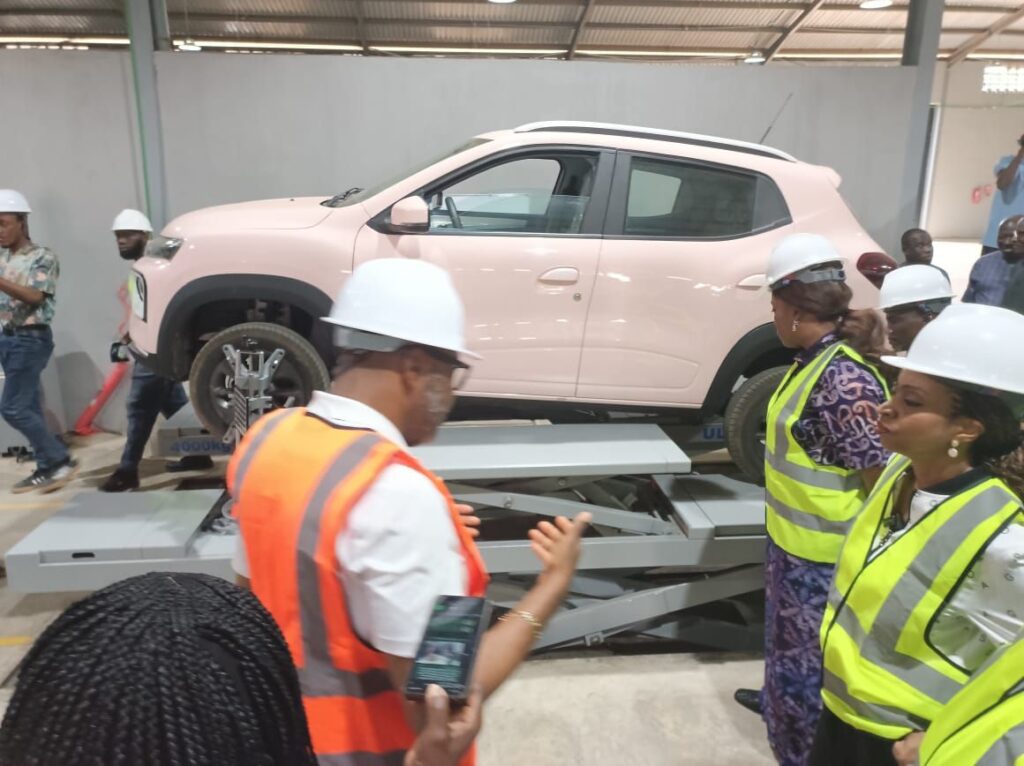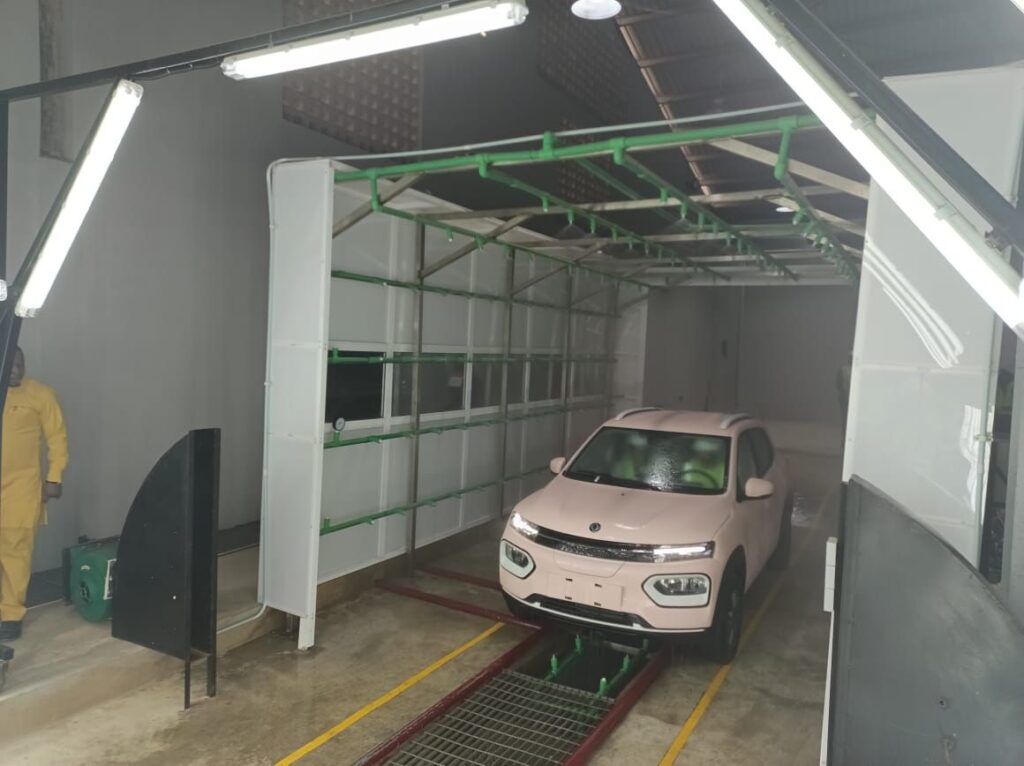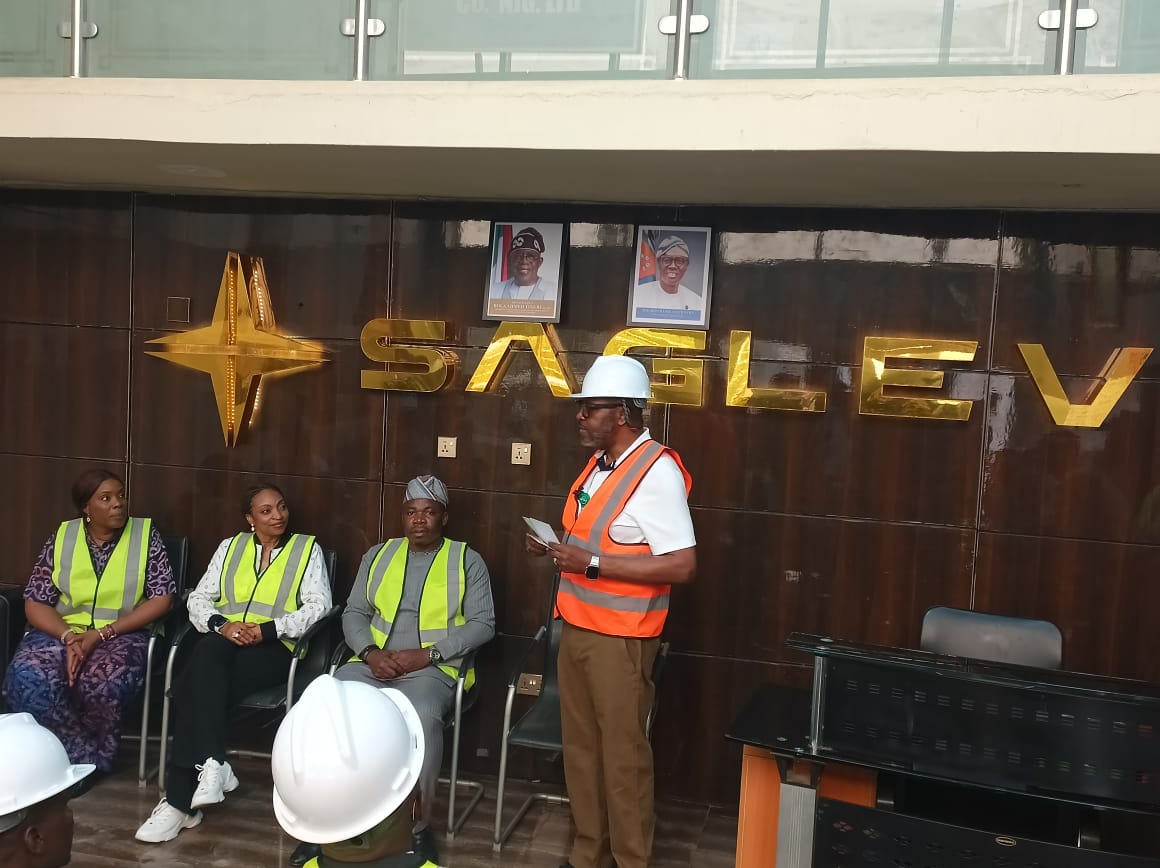The greener energy initiative of the Federal Government of Nigeria has received a big boost by the recent activation of the Saglev Electric Vehicle Company at Imota, Ikorodu, Lagos, Nigeria.
Despite the challenging economic and business landscape currently hampering their smooth operations, the company sees a bright future.

The Chairman and CEO of SAGLEV Electric Vehicle Assembly Plant, Dr. Sam Gbenga Faleye affirmed the company’s commitment to driving electric mobility in Nigeria and across Africa.
He highlighted that they have issues meeting up with car orders due to delays with importation of components for their plant, specifically mentioning issues such as misclassification of Harmonised System (HS) codes, underutilisation of digital clearance systems, and the bottleneck at Lagos ports.
Despite these, Faleye and his team are doing all within their power to focus more on providing solutions to their issues instead of lamenting on the challenges.
During a recent visit of the Honorable Minister for Industry, Trade, and Investment, Dr. Jumoke Oduwole to the plant in Ikorodu, Lagos, Dr Faleye seized the opportunity to state these challenges to the federal government as sorting these issues out will be a big foundation to boost and sustain the push by the government for greener energy in Nigeria.
In his words, “currently, five containers of Semi-Knocked Down (SKD) EV parts remain stuck at the port, causing delivery delays to customers who’ve already placed orders”, he disclosed.
He pointed out some advantages of EVs over their internal combustion counterparts like being cost-efficient and the durability of electric vehicles. “Many Nigerians are unaware that EVs reduce maintenance costs by up to 60 per cent and eliminate the need for oil changes”, he stated. With just 40 moving parts compared to thousands in traditional vehicles, the reliability of EVs represents a game-changing shift.
He stressed the importance for government-led financing programmes and widespread charging infrastructure. “80 per cent of EV drivers will charge at home, but systems must be in place to support broader access”, he said.
He pointed out that currently they have capabilities to produce 16 different models of electric vehicles including buses, sedans, SUVs stc that can serve a diverse range of needs for customers.
“We’re not just building cars we’re building capacity, knowledge, and a new automotive identity for Africa,” Faleye concluded.

He equally pointed out that with his citing his plant at its location, more development has been brought to the community and locals employed. And taking their staff welfare as a priority, the company has a fully equipped residential quarters for their staff. And they also give equal rights to females to be employed in their establishment.

